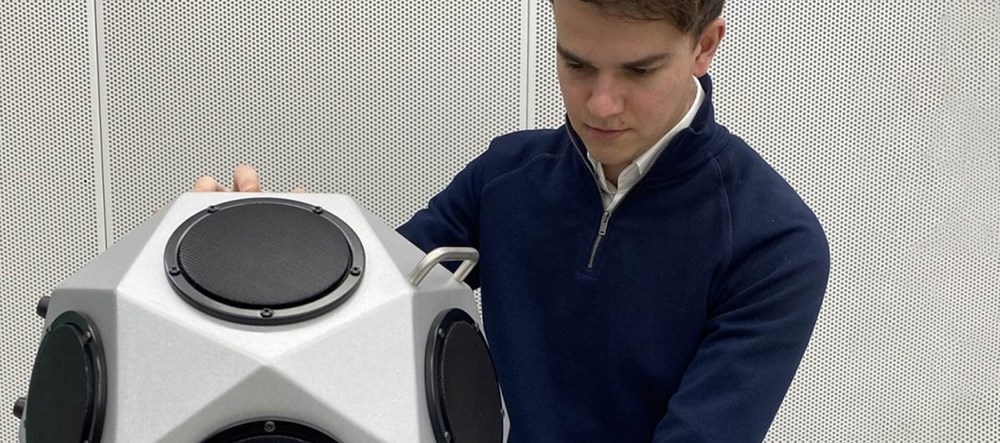Sounds refined
Mechanical acoustics engineer Ben West ensures that the parts and systems of Bentley motor cars don’t create bad noises.

What do you do on a typical workday?
I mostly develop the aeroacoustic performance of our vehicles, which involves ensuring that parts and systems, such as the exterior shape, glazing and sealing system, don’t create bad noises. More recently, this has involved developing new simulation processes so people can hear what a vehicle will sound like before going into production.
What do you love about your job?
Influencing the parts of a vehicle to improve the sound, and then driving the car and hearing the difference!
Why did you choose to work in acoustics?
Sounds affect all experiences either positively or negatively. In acoustics, it is our job to make sure that the sounds contribute positively to a person’s experience – achieving that can be incredibly rewarding!
What did you study to get into acoustics?
A BEng (Hons) degree in Mechanical Engineering at Manchester Metropolitan University, and a Master of Science in Acoustics with Audio Applications at the University of Salford.
What is most challenging about your job?
Balancing the acoustic performance desired with design constraints such as cost, weight or functionality.
What are the most important skills to have in your job?
The ability to solve problems is very important. Problems arise when developing vehicles and the ability to stop and think carefully about the best way forward certainly helps.
How does your work make a difference to peoples’ lives?
My work helps to ensure that anybody entering a Bentley product, whether they are a regular customer or are experiencing a Bentley for the first time, enjoys extraordinary refinement.
What else might a student need to know about a career in acoustics?
Don’t worry too much if your course doesn’t cover the exact discipline you wish to work in; a good understanding of the fundamentals can be applied to any field.
Tell us a fun acoustic fact!
The sound pressure level at the exhaust of a Bentley Continental W12 can reach 115dB(A)!
What advice would you give a young person who was considering engineering as a future career?
If you are unsure which exact discipline of engineering you would like to work in, study a broad subject such as mechanical, or physics – you’ll find the specific field you love soon enough!
What skills and personal qualities are important for being an engineer?
Problem-solving skills will help you on a day to day basis as an engineer; as will the curiosity to question why things are the way they are, and the confidence to suggest ways to improve them!